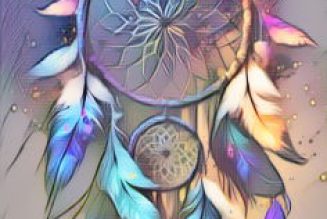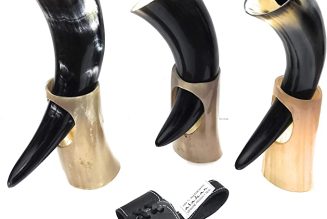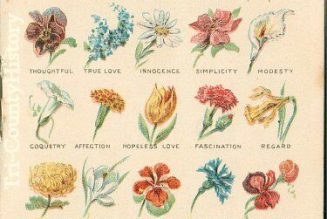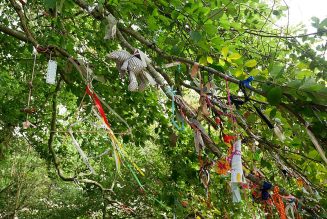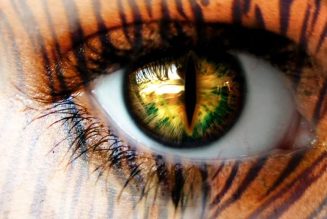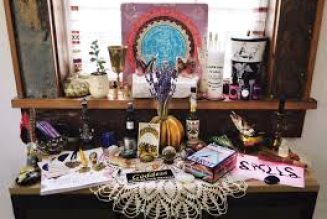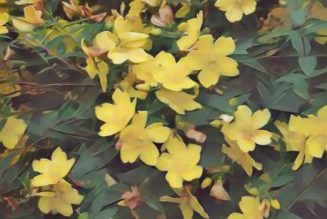Rosaleen Norton was an Australian artist and occultist who gained notoriety in the 1950s for her controversial and provocative artwork. Born in 1917 in Dunedin, New Zealand, Norton moved to Sydney, Australia with her family when she was a child. She showed a talent for art from a young age and attended the East Sydney Technical College to study painting.
Norton’s interest in the occult began when she was a teenager and she soon became involved in various esoteric groups and practices. Her artwork drew heavily on her occult beliefs and often featured themes of sexuality, mythology, and the supernatural. Her work was considered shocking and obscene by many at the time and she was even charged with obscenity in 1955, although the charges were eventually dropped. Despite the controversy surrounding her work, Norton continued to create art until her death in 1979.
Biography
Early Life
Rosaleen Norton was born on October 2, 1917, in Dunedin, New Zealand. She was the youngest of two children born to a conservative family. Her father was a former soldier and a house painter, while her mother was a homemaker. Norton had a difficult childhood, as her family was poor, and her parents were strict and religious. She was often punished for her unconventional behavior and her interest in the occult.
Artistic Career
Norton moved to Sydney, Australia, in 1949, where she started her artistic career. She became known for her controversial paintings and drawings, which often depicted occult and erotic themes. Her art was heavily influenced by her interest in the occult and her experiences with astral projection and spiritualism.
Norton’s work gained a following in the 1950s and 1960s, and she exhibited her art in various galleries in Australia and overseas. However, her work was often met with controversy and censorship, as it was considered immoral and obscene by many.
Controversy and Persecution
Norton’s interest in the occult and her unconventional lifestyle made her a target of the authorities. She was accused of practicing black magic and was investigated by the police for her alleged involvement in a satanic cult. Norton was also persecuted for her sexuality, as she was bisexual and had relationships with both men and women.
In 1955, Norton was charged with obscenity for her paintings and drawings, and her work was seized by the police. She was later acquitted of the charges, but her reputation was tarnished, and her art was banned in many parts of Australia.
Norton continued to create art and practice the occult until her death in 1979. Despite the controversy and persecution she faced, she remains a significant figure in the Australian art world and a symbol of freedom of expression and individuality.
Beliefs and Practices
Thelema and Aleister Crowley
Rosaleen Norton was heavily influenced by the teachings of Aleister Crowley and his philosophy of Thelema. Thelema is a spiritual philosophy that emphasizes individualism and the importance of finding one’s own true will. Norton was drawn to the idea of personal freedom and self-discovery, which is reflected in her artwork and occult practices.
Crowley’s influence can be seen in Norton’s use of ritual magic and her belief in the power of the occult to transform reality. She often incorporated symbols and imagery from Thelemic rituals into her artwork, such as the Eye of Horus and the pentagram.
Sexual Liberation and Feminism
Norton was also a strong advocate for sexual liberation and feminist ideals. She believed that women should have the freedom to express their sexuality without shame or judgment. This belief is reflected in her artwork, which often featured erotic and sensual imagery.
Norton’s feminist beliefs were also reflected in her personal life. She lived openly as a bisexual woman at a time when homosexuality was still illegal in Australia. She was a vocal advocate for LGBTQ+ rights and was involved in several protests and demonstrations.
Occult Practices
Norton’s occult practices were heavily influenced by her interest in Thelema and Crowley’s teachings. She believed in the power of ritual magic to transform reality and often conducted elaborate ceremonies in her home.
Norton also had a deep interest in the supernatural and paranormal. She claimed to have had several encounters with spirits and entities, which she often depicted in her artwork. She was also interested in astrology and believed that the movements of the planets and stars could influence human behavior.
Overall, Norton’s beliefs and practices were a reflection of her desire for personal freedom and self-expression. She saw the occult as a means of exploring the unknown and unlocking hidden truths about the world and herself.
